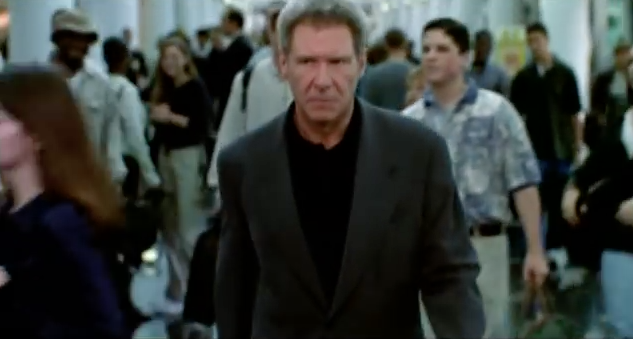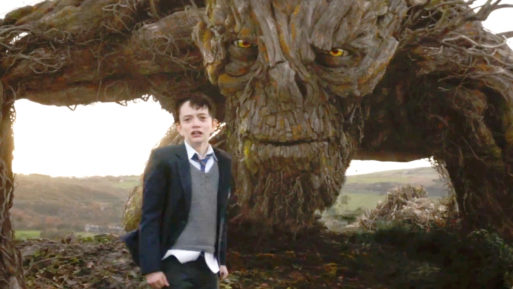
Dutch traveling physically and metaphorically through his discovery process
Credit: “Random Hearts” trailer screen shot
We are all aware that movies can be incredibly powerful, but we rarely consider them to be a grief healing tool. Nevertheless, they often are.
I experienced this personally in 2009. In the midst of my deep anguish and feelings of loss after learning that my husband was gay, a movie offered me powerful grief healing. At the time, I filled my days with relentless, nonstop work — my way of escaping the pain. But the days were followed by sleepless nights when the pain caught up with me.
One night when I couldn’t sleep, I happened upon the film “Random Hearts.” I watched as Harrison Ford’s character, Dutch, stumbled through his own grief following the death of his wife in a plane crash. At the same time, he also discovered that his wife had been having an affair. While my personal circumstances were not identical, they existed in the same parallel universe.
A Process of Discovery
The fact that the movie was mediocre had no impact on how mesmerized I was by Dutch’s experience of shock, denial, disbelief and discovery. It was like witnessing myself going through the same thing. I completely related to Dutch’s need to understand his wife’s hidden life and track down who her lover was. For me, too, it was all about discovery. He sleuthed — traveling cross-country to visit the locations of their clandestine meetings. This comforted me and validated that I was not as crazy as I thought I was when I went through my own process of discovery. Most movie reviews accuse “Random Hearts” of being too long and drawn out, but so is shock and disbelief. At the time I was fully immersed in my own slow-motion shock, so the film aligned perfectly with my own pace.
I still remember how cathartic that film was. Did it magically heal me? No, it never happens that way. But it was pivotal in pulling me out from the depths of my grief and the burden of my process. It helped me grasp that my path was different, yet not uncommon when deceit intersects with loss.
A year later, I connected with an old boyfriend. He told me about a woman he dated who he realized was emotionally unstable — how she swallowed a whole bottle of pills from his medicine cabinet. He rushed her to the hospital, where she was treated and released. When he was driving her back home, he gently suggested that they not date anymore.
A Tragic Suicide
My friend was in first gear, driving through a quiet residential neighborhood. Suddenly, the woman opened the car door and leaped out exclaiming, “Have a nice life.” She died in the fall. My friend was devastated, but he says he now realizes she did not intend to die when she jumped from the car. He ends his story by mentioning how life is like an “Indiana Jones” film he saw years ago. In the film, the father makes the profound statement, “In life, the older you get the more life takes from you and the less it gives you.” I am struck now by the fact that his life was tragically altered by a suicide, and a movie was his catharsis too.
He ends his story by mentioning how life is like an Indiana Jones film he saw years ago. In the film, the father makes the profound statement, “In life, the older you get the more life takes from you and the less it gives you.” I am struck now by the fact that his life was tragically altered by a suicide, and a movie was his catharsis too.
Different Paths to Healing
Of course, this doesn’t mean that a movie will be cathartic for everyone who has suffered a loss. But it might help the grief healing process move forward a step. In fact, I witnessed this last week.
Men are usually less willing to accept help or go for grief therapy following a loss. Larry, the man I live with, lost his son over four years ago to anaphylactic shock. He’s able to talk about his son’s death and has been able to move on with his life. But he doesn’t want to see a therapist.
I rented a wonderful movie, “A Monster Calls” about a young boy, Conor, whose mother is terminally ill. Conor uses his imagination to deal with his pain as his mother is dying. Larry watched the movie with me, and at the end, I left the room to take a shower. When I returned, he was sitting there staring at the final credits and listening to the lulling sound of the score playing in a continuous loop. He quickly turned off the TV just before I walked back in the room. Although Larry’s son did not die from a terminal illness, I could see that the truths the film explored were helping him with his own grief healing as well.
For those traveling a path through grief, I encourage you to watch some films. At the very least, it may help take your mind off your pain for a while. At best, it will get you thinking, comfort you, or offer an epiphany towards your grief healing too.

 Movies Are an Unexpected Grief Healing Tool
Movies Are an Unexpected Grief Healing Tool




 How Dare You Die Now!
How Dare You Die Now!
 Debating Medical Aid in Dying
Debating Medical Aid in Dying
 “Help Me, Helen”
“Help Me, Helen”














